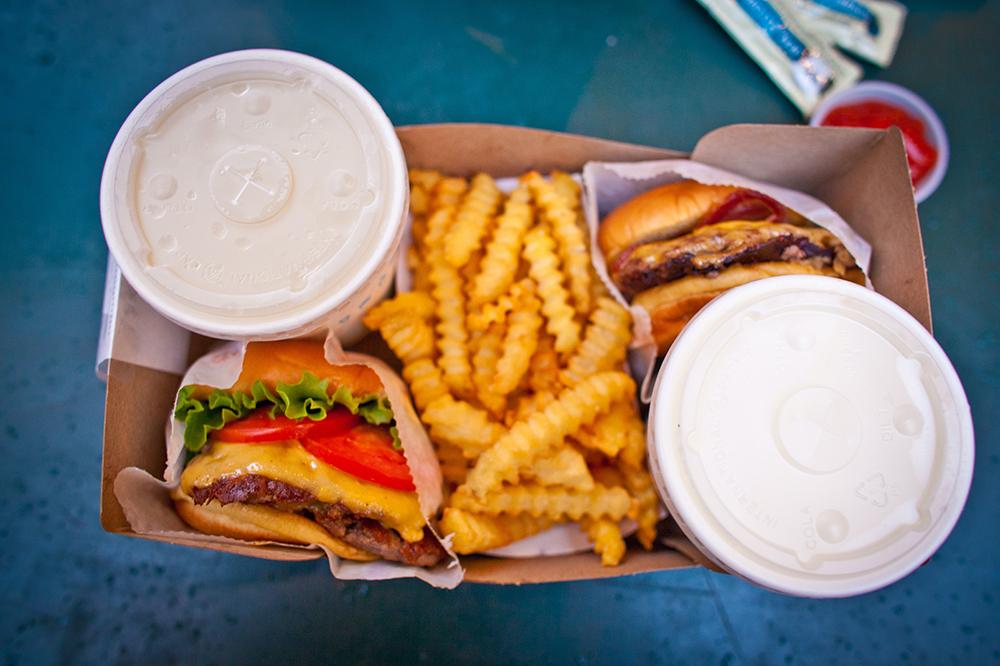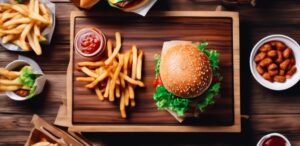
With all the unpredictability of COVID-19, it’s easy to get nervous, fearful, or overwhelmed. Because food is comforting and stress-relieving, I’ve been hearing from clients and friends that they've been snacking more and overeating. So, they come to me for a solution.
This is such a common experience, and I want you to know there is a solution. You can be completely in control and at peace with how and when you eat, no matter the circumstance.
If you’re wondering how, let me share how I did it, and a few of my clients:
When I was little, people called me a “worry wart.”
I’d get so stressed sometimes I couldn’t think straight. The best way to calm down was almost always food.
I used food for comfort without really thinking about it for the first 16 years of my life. In high school, I started to gain weight and become concerned about body image. This turned into a hormonal and emotional mess. I felt I needed to eat to feel better, but eating made me feel worse. Stress only increased as I got older. I overate more and more until I realized I didn’t have any control over how I ate any more. I developed an eating disorder.
Have you ever felt out of control with how you were snacking or eating?
Most of the clients I work with struggle with snacking too much and overeating at least sometimes, even if they don’t have an eating disorder. They seek sugar, processed foods, and comfort foods when they're stressed, bored, tired, or overwhelmed.
They come to me because food is no longer solving their emotional problems. In fact, it’s making them worse because they’re unhappy with weight gain, digestive issues, and their own lack of self-control. They feel stuck or frustrated.
I’ve seen this become even worse as we are now isolated in our own homes and overwhelmed by the uncertainty of a world pandemic.
I didn’t know this in high school, but food has a powerful comforting effect that is both psychological and physiological. It doesn’t just soothe hunger. Snacking creates a dopamine and endorphin rush in our brains. This makes us feel happier. Plus, food has emotional ties to comfort and joy that affect us as well.
Stress eating has always been a thing, so it just gets worse when life gets more uncertain. But, it’s nothing new.
The solution is in the way we think.
I can’t emphasize this enough. We can tell ourselves to stop eating sugar and go on as many diets as we can, but these will never solve the problem without also changing the pattern of thinking that got us there in the first place.
Otherwise, you will bring your old way of doing things to a new diet.
Stress will always be there, and overwhelm is a normal human experience. So, how do we deal with them in a way that serves us and also makes us feel better?
I’m here to tell you that the problem isn’t food. It’s not the donut or the jar of peanut butter. It’s not even the stress or the thing that’s causing the stress.
Stress doesn’t make you overeat. Uncertainty doesn’t make you overwhelmed or helpless. It’s the way you think about stress and food and overwhelm that determines the way you respond and therefore the outcome.
I can say with certainty that just a couple years ago, if I had been isolated at home in the middle of a pandemic, I would have been stress eating and snacking all day long. And I would have felt sick about it.
Yet I would have felt I had no other option.
But today, I eat no different than I did before COVID-19. Stress has zero effect on how I eat, when I eat, or how I feel about it.
And I must say, it feels incredible to have that peace of mind.
Keep growing,
Coach Michelle

I have a client I am working with who used to feel overwhelmed by the thought of cooking and eating healthy. So, she gave up on eating healthy at all.
She came to me when she realized she wanted to change her health and lose weight. She was overeating sugar, snacking all day, and more at night.
When we talked it through, we discovered that she believed healthy eating had to look a certain way and why she was resistant to that. She felt guilty and ashamed of not changing her habits, but she also didn’t want to or know how to do anything different.
When we separated healthy eating from all the terrible things she thought it had to be, she started to see how she could make health an easy, fun, and desirable thing. Now she’s excited about the food she makes and proud of how she cares for her body.
And her way of being healthy looks different than anyone else’s :).
When we understand that whatever is happening outside us or to us is completely separate from how we choose to be or respond, we can have freedom. That’s how.
After that, it just takes practice and support to create new habits and responses.
Now, if you hear yourself in any of this, I’d love to talk with you and help you create peace with food. I’d love to help you feel powerful and in control of your life, even in the midst of this chaotic time so that you can be your best self.
If you’d like that, come join my Facebook community where I teach how to manage stress and healthy eating, end overeating, cook and eat healthy at home, and more. Click here to join.
Or, if you know a friend who could use some support right now, share this article with them. Trust me, having felt stuck before, I know that a friend reaching out always helps.
Keep growing,
Coach Michelle
Nighttime eating, especially when driven by stress, can lead to consuming more calories than needed and pose challenges in managing weight. Here are some strategies to help curb stress-induced nighttime eating:
Stress eating sweets can be a specific challenge, and addressing it requires targeted strategies:
Exam season can bring additional stress, leading to heightened emotions and potentially impacting eating habits. Here's how to manage stress eating at night during exams:
Nutrient-Rich Foods: Consume nutrient-rich foods to support energy levels and focus during exams. A well-balanced diet contributes to overall well-being, both physically and mentally.
DO YOU WANT TO TALK MORE ABOUT YOUR HEALTH AND FITNESS GOALS?
Enter your name and contact information below and a team member will reach out to you.
DO YOU WANT TO TALK MORE ABOUT YOUR HEALTH AND FITNESS GOALS?
Enter your name and contact information below and a team member will reach out to you.
DO YOU WANT TO TALK MORE ABOUT YOUR HEALTH AND FITNESS GOALS?
Enter your name and contact information below and a team member will reach out to you.




